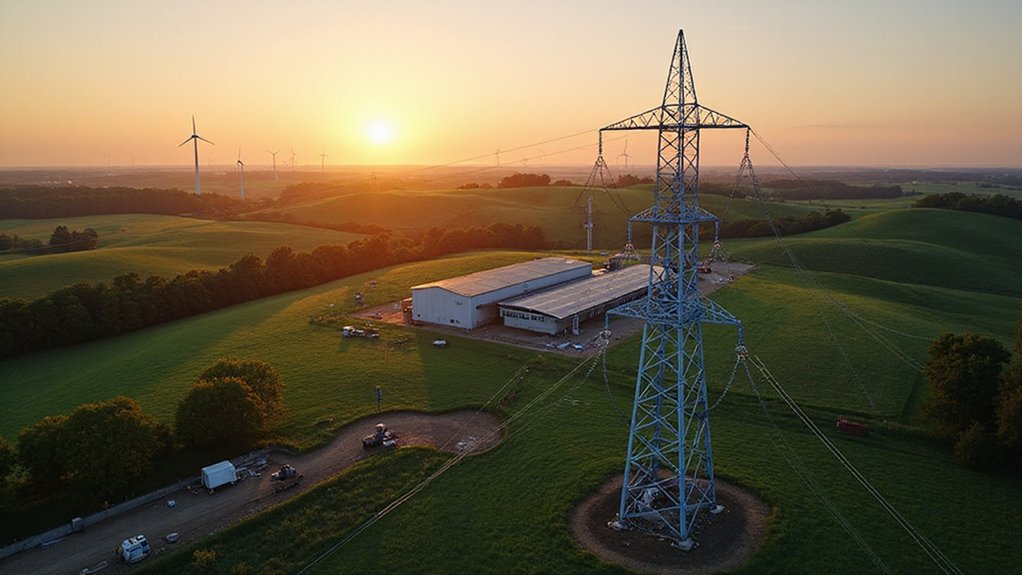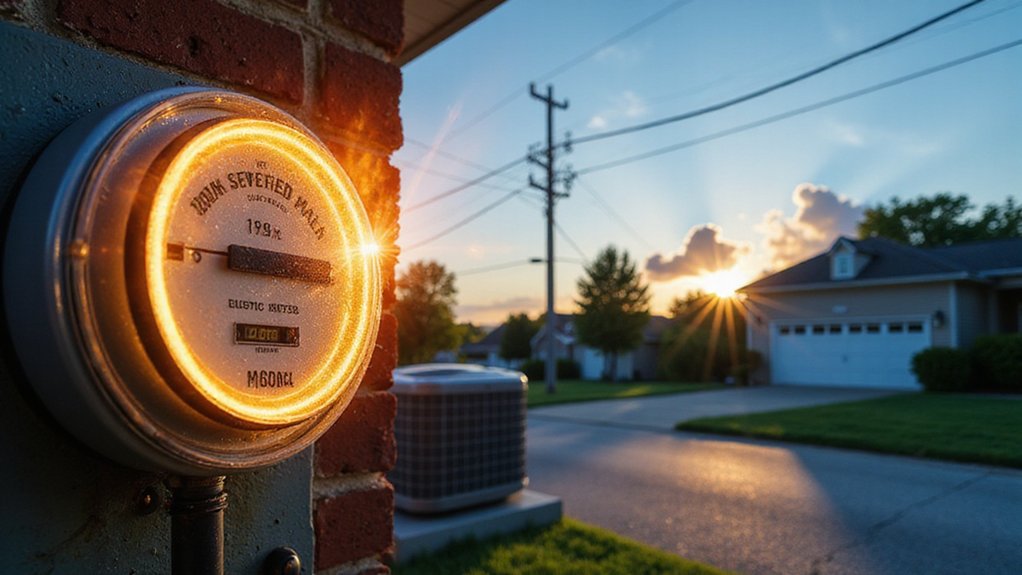Germany’s sweeping grid reform aims to slash electricity costs by a whopping €1.5 billion over three years. The plan? Eliminate outdated subsidies for small conventional power generators by 2029. Solar and wind sectors dodge the bullet, keeping their benefits intact. Customers might see electricity prices drop by “at least five cents” per kWh, while transmission grid fees could be halved. The A-Nord power link approval shows they’re not just talking big.
Several bold reforms are set to reshape Germany’s power grid economics, potentially saving customers a whopping €1.5 billion over three years. That’s no small change. The plan targets those pesky “avoided network tariffs” currently paid to small conventional power generators—a relic of a different energy era that costs about €1bn annually. Solar and wind sectors? They’re off the hook. Lucky them.
Germany’s grid overhaul promises €1.5 billion in consumer savings by axing outdated subsidies for conventional generators while leaving renewables untouched.
Starting January 1, 2026, these tariffs will start disappearing. Fast. We’re talking 25% cuts annually until they’re completely gone by 2029. The Bundesnetzagentur president didn’t mince words when calling these subsidies “no longer appropriate.” Yeah, no kidding. The consultation period runs until May 23, 2025, so industry players better speak now or forever hold their peace.
Meanwhile, Germany’s pushing ahead with massive infrastructure projects. The A-Nord power link—a 2GW underground direct current line stretching over 300km—just got the green light. It’ll connect Emden to Meerbusch near Düsseldorf by mid-2027. These projects are essential as the avoided network tariffs constitute approximately 3% of Germany’s total network costs. Moving wind power south? Problem solved.
The government’s not stopping there. They’re gunning to slash electricity prices by “at least five cents” per kWh. How? By cutting the electricity tax to practically nothing and halving those hefty transmission grid fees. Recent McKinsey analysis suggests this could reduce prices from around 50 cents/kWh to 36-38 cents/kWh for consumers. Companies will pay just 0.05 cents/kWh, households 0.1 cents/kWh. Downright cheap.
On the generation side, ambitious plans call for 20GW of new gas-fired power plants by 2030—way up from the previous target of 12.5GW. And they’re leaving room for carbon capture systems. Smart move. This shift comes as renewable energy has been a major catalyst for global economic growth, adding $320 billion to the worldwide economy in 2022.
Despite all these cost-cutting measures, Germany’s sticking to its climate guns: net-zero by 2045 and a 90% emissions cut by 2040. They’re basically trying to have their cake and eat it too—balancing climate protection, social equity, and economic growth while ensuring “permanently low, predictable and internationally competitive energy costs.” We’ll see if they pull it off.
References
- https://www.power-technology.com/news/germany-regulator-e1-5bn-grid-cost-reductions/
- https://www.cleanenergywire.org/news/reduced-electricity-demand-could-slash-germanys-transition-investments-2035-report
- https://www.cleanenergywire.org/news/germanys-budding-coalition-agrees-electricity-price-cuts-e-car-subsidies
- https://gasprocessingnews.com/news/2025/04/germanys-future-coalition-unveils-plan-to-cut-electricity-costs-boost-gas-power/
- https://www.enerdata.net/publications/daily-energy-news/germany-plans-develop-20-gw-gas-power-plant-capacity-2030.html









